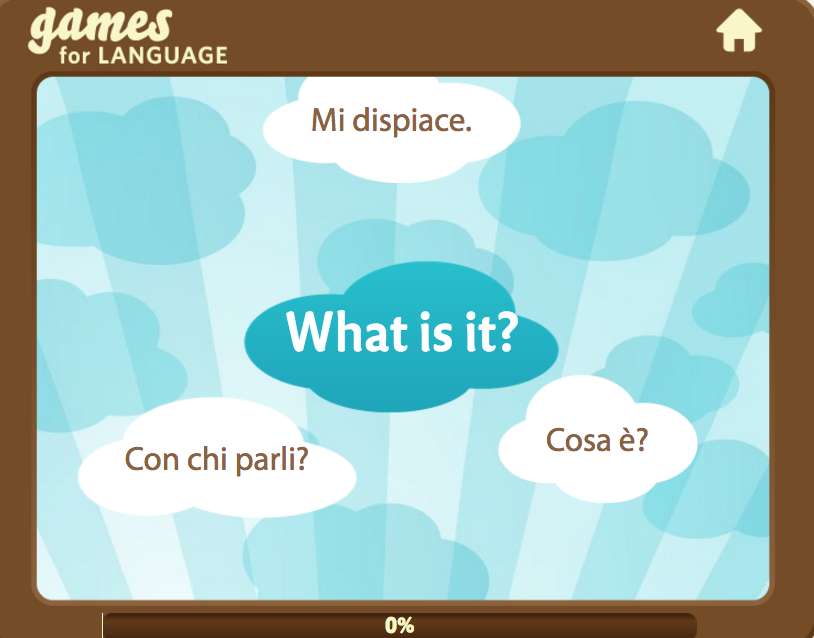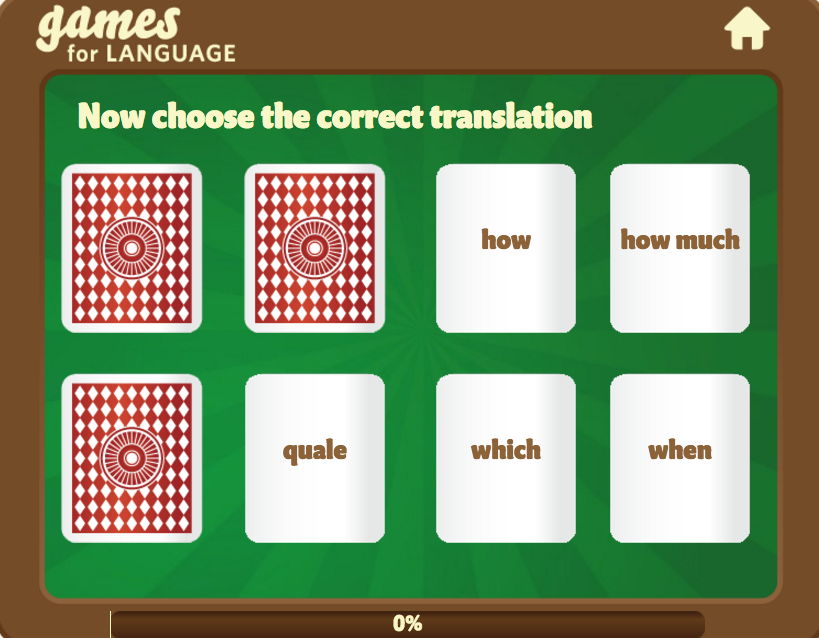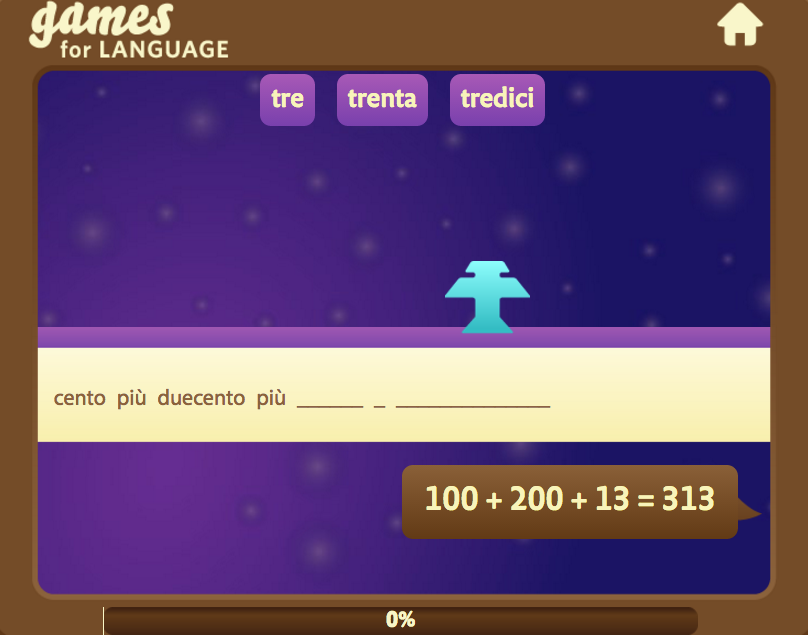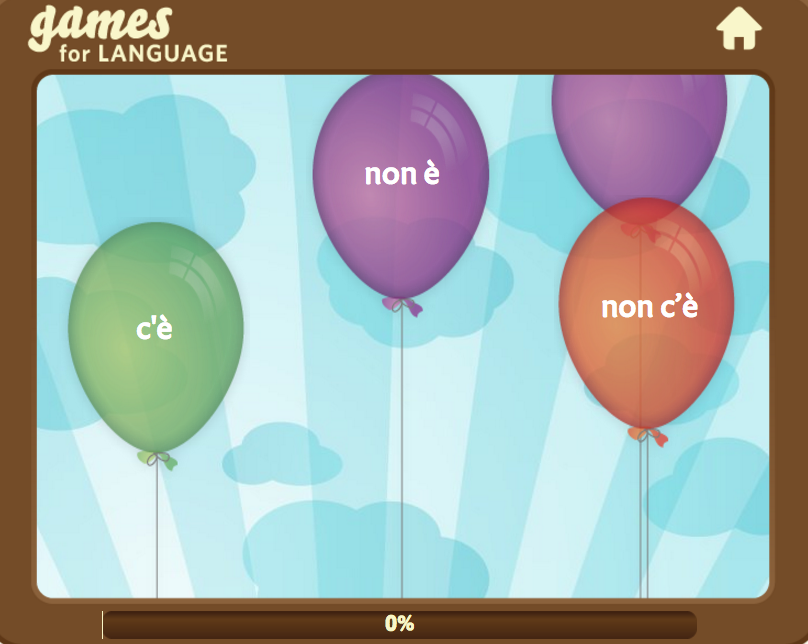4 Fun Italian Language Games Before You Travel
 Play these 4 fun Italian Language Games a few times before you travel to Italy or to a region where Italian is widely spoken.
Play these 4 fun Italian Language Games a few times before you travel to Italy or to a region where Italian is widely spoken.
The four games in this post are just a taste of Italian, of course. It takes more to become fluent in Italian, but they're a start. And we hope that they'll inspire you to learn more.
For us, knowing at least some everyday vocabulary, essential travel phrases, and the numbers 1-100 has been a must for our travels in countries where we don't speak the language.
Some Simple Tips
• Always say the words and phrases aloud. The more you do this, the better you'll remember them. It will also greatly improve your pronunciation over time.
• Focus on practicing any expressions as "chunks" and try not to think about them as individual words. Like that, you'll directly link sound to meaning.
• Whenever you can, associate words and expressions with an image in your mind. That way you'll remember them better.
• It's essential to repeat words and phrases many times. Hearing or saying something just once or even twice doesn't cut it.
• Speaking involves using various mouth muscles to produce the right sounds. The term "muscle memory" well describes how we learn to produce sounds that are not in our native language. And ultimately, our brain has to attach the correct meaning to a particular sound sequence.
• Whatever your preferred method for learning may be - saying the Italian out loud and writing words and phrases out by hand helps you to internalize the language.
1. Basic Everyday Italian Phrases
Learning greetings and pleasantries in a language is a start,  especially if you practice them so you can say them spontaneously and with good pronunciation.
especially if you practice them so you can say them spontaneously and with good pronunciation.
There are lots of situations you can use them throughout the day - when getting your morning coffee in a café; visiting the local market; browsing in a store; having lunch or dinner; hanging out in a bar; socializing with new friends, etc.
Click on Basic Phrases or the screenshot right to play this Italian Quick Language Game. "What is it?" may be a question you can ask the waiter when a menu item is unfamiliar to you.
2. Italian Question Words
 Quick questions help you to orient yourself in a city; to get information about when shops and museums are open; to ask for the price at markets; to start conversations with people you've just met, etc.
Quick questions help you to orient yourself in a city; to get information about when shops and museums are open; to ask for the price at markets; to start conversations with people you've just met, etc.
Common English questions words - with the exception of "how" - begin with a "wh-" sound (which, where, when, why, what, who, whom).
Italian interrogatives have greater variety of sound and form. There are contractions, such as: dov'è (of dove + è = where is). Chi (who/whom) combines with the prepositions a, di, con, and per - which go before. There are three ways to ask "what?": che cosa?, che?, cosa? - which are mostly interchangeable.
Here is a Game to practice the 8 Italian question words. ( Or click on the "Memory game" screen shot, above left.)
3. Practice Numbers with these Italian Language Games
Mastering the numbers gives you a great tool for dealing with daily  tasks in another language. But you need to practice them enough to understand them easily and to say them automatically.
tasks in another language. But you need to practice them enough to understand them easily and to say them automatically.
Numbers come in handy for setting appointments, paying in stores or restaurants, making reservations, purchasing tickets, etc.
The Italian numbers from 1 to 20 can be easily memorized. And, once you know the round numbers 20, 30, 40, to 90, you won't have any trouble with the numbers from 21 to 100.
One thing to remember is that from 21 on, you contract the compound number slightly when the second number starts with a vowel, which is the case with "uno" (one) and "otto" (eight). So you say "ventuno" and "ventotto" in contrast to "ventitré" or "ventinove." This is consistent right through 99: "novantuno" and "novantotto" versus "novantatré" or "novantanove."
Here's a game to practice the numbers 21 and beyond in a fun way. (Or click on the "Word Invaders" screen shot, above right.)
4. Making a Phone Call in Italian
 It's quite a challenge to make a call in a foreign language. But hey, if you do it often, it'll become routine and give you quite a boost in confidence.
It's quite a challenge to make a call in a foreign language. But hey, if you do it often, it'll become routine and give you quite a boost in confidence.
When we were staying in Rome, I was the one who regularly called in to make a tennis court reservation at a local club where we played. At first I was nervous and read off what I was going to say. Even then I made mistakes.
After a couple of weeks, though, it became automatic and I actually enjoyed doing the call. It also prepared me for making other and more difficult calls later.
Every call you make is going to be a little different. But with a little practice, you learn how to prepare and how to deliver what you want to say.
Here's a Game to learn and practice how to ask for someone on the phone, and possible responses. "Non c'è" is a common phrase meaning that someone isn't there. Click on Pronto or the screen shot of the listening game above left.
Free Italian with Gamesforlanguage
If you enjoy our approach and these games, look for more Quick Games for French, Italian, Spanish, and Inglés on our site.
Or why not try our FREE Italian 1 travel-story course: Marco in Italia. With its 36 fifteen-minute lessons you'll learn close to 750 new words in the context of useful situations and as part of sentences.
But, even more importantly, you'll practice the phrases and sentences of a travel story – useful, real life language that you'll be able to put to use when visiting Italy, or a country or region where Italian is widely spoken.
These include the canton of Ticino (Switzerland), the peninsula of Istria (Croatia), the island of Malta, the state of Monaco, and the micro-state of San Marino. Any of these would make fascinating travels, by the way!
And, just maybe, you'll also get enchanted by Italian songs such as by one of our Italian favorites: “Dimmi Quando...”. This early 60s song, first performed by Tony Renis – who also wrote the music – was translated into many languages and later sung by Pat Boone, Connie Francis, and others. You can learn more about this song and the lyrics with their typical Italian constructions, by clicking on the above blog post link.
Bio: Ulrike Rettig is the co-founder of Gamesforlanguage.com. She is a lifelong language learner, growing up in Austria, the Netherlands, and Canada. You can follow her on Facebook, Twitter and Instagram, and leave any comments with contact.
